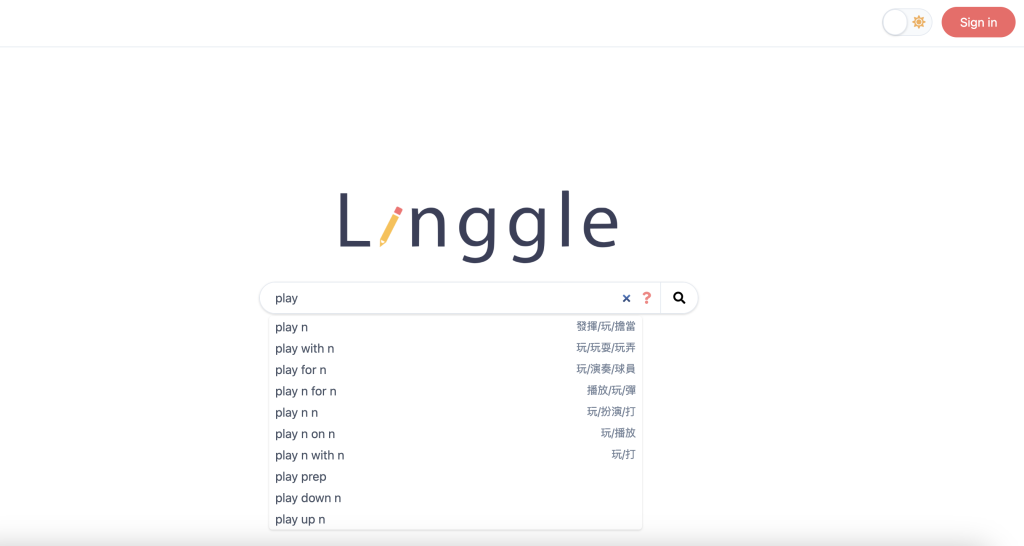Lesson 1 description
It depends on the situation
William Garcia
It depends on the situation
The lesson It depends on the situation was designed for B1, B2 and C1- level learners, based on the Common European Framework of Reference for Languages (CEFR, 2001). The goal of this lesson is to learn how to use prepositions that follow verbs, nouns and adjectives.
This lesson is available in hands-on and hands-off formats. The difference between these two formats is that in the first one, learners are required to access Linggle to search for the linguistic data necessary to complete the activities. The second format does not require learners to access this tool as the linguistic data has been previously selected by the author, and is available to download in the lesson itself.
Regarding Linggle, learners are expected to be able to use some search options using the wildcard * and _ as well as the Part-Of-Speech (POS) label for prepositions – (prep.). Check a screenshot of the Linggle home page below.

Watch Pressbooks Video 13 (YouTube, 5m54s) below to learn more about how to use LINGGLE.


